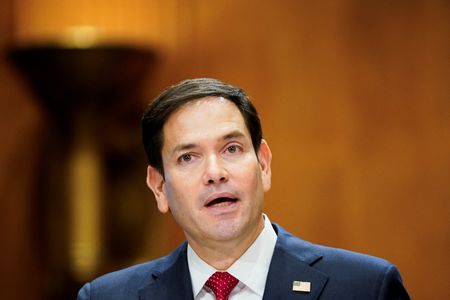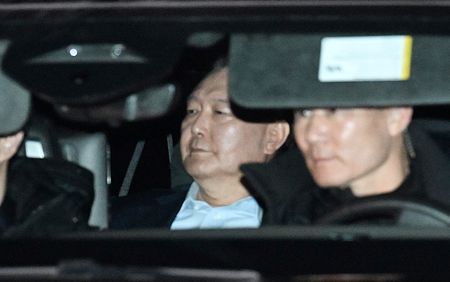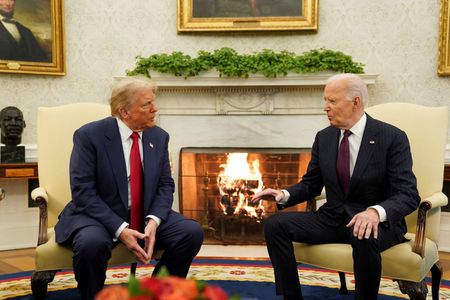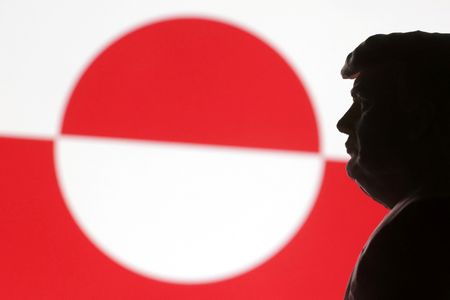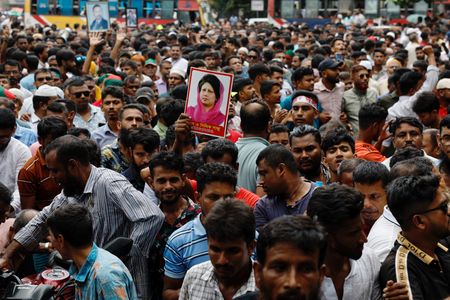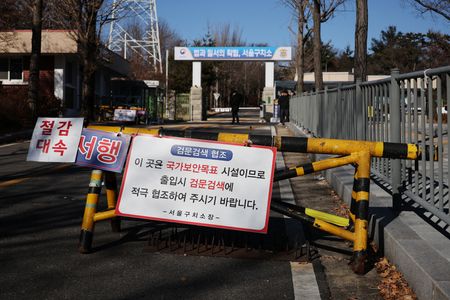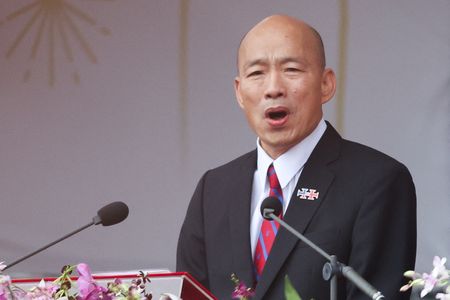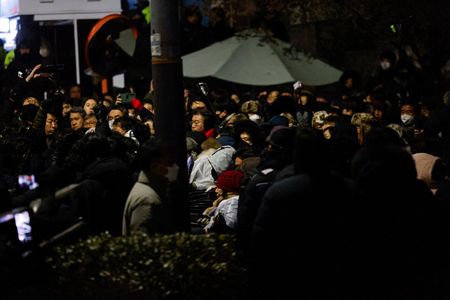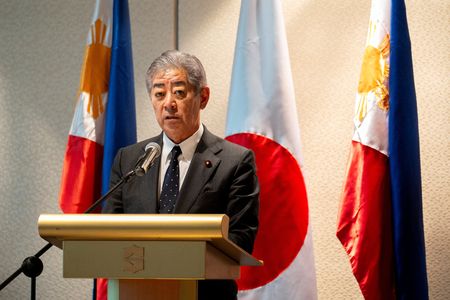By Patricia Zengerle, Simon Lewis, Doina Chiacu and Michael Martina
WASHINGTON (Reuters) -U.S. Senator Marco Rubio, President-elect Donald Trump’s nominee to be secretary of state, warned on Wednesday that the United States must change course to avoid becoming more reliant on China and do more to discourage Beijing from invading Taiwan, as he promised a robust foreign policy focused on American interests.
The Republican senator, who is expected to comfortably win confirmation as the nation’s top diplomat, did not detail how he would go about deterring China, but his remarks represent a stark message about changes in U.S. policy.
Rubio, 53, addressed major foreign policy issues in a friendly hearing before a committee where he has served for 14 years. He said an end to the war in Ukraine was essential with both sides having to make concessions, but spoke most strongly about the need to confront China. Rubio’s nomination is expected to be confirmed by the full Senate as soon as Jan. 20, the day Trump is inaugurated for a second term.
“If we stay on the road we’re on right now, in less than 10 years, virtually everything that matters to us in life will depend on whether China will allow us to have it or not. Everything from the blood pressure medicine we take, to what movies we get to watch, and everything in between, we will depend on China for it,” Rubio said.
“That’s an unacceptable outcome.”
Rubio said confronting China would involve building U.S. domestic industrial capacity.
The outgoing Biden administration has taken measures to block China’s access to semiconductor technology and kept in place some policies toward China from Trump’s first term, but Trump has said he will impose many more tariffs on Chinese goods.
Rubio has been one of Congress’ leading advocates for stronger policies to compete with China. His support for Hong Kong democracy protesters earned him Chinese sanctions in 2020, meaning he could be the first secretary of state under active Chinese travel restrictions.
He said Washington must help the self-governing island of Taiwan with its so-called porcupine strategy to discourage a Chinese invasion.
Unless Washington makes “dramatic” changes, he said, it would have to deal with the prospect of a “cataclysmic military intervention” in the Indo-Pacific before the end of the decade.
“We need to wrap our head around the fact that unless something dramatic changes, like an equilibrium where they conclude that the costs of intervening in Taiwan are too high, we’re going to have to deal with this before the end of this decade,” Rubio said.
WORLD IN CHAOS
In his opening statement, Rubio said he sees a world in chaos where it will not be easy to restore order.
“It will be impossible without a strong and a confident America that engages in the world, putting our core national interests once again above all else,” Rubio said.
The son of immigrants from Cuba, Rubio would be the first person of Hispanic origin serving as the top U.S. diplomat.
Rubio’s remarks were briefly interrupted by a handful of protesters. One spoke in Spanish and mentioned Latin American countries that the U.S. has hit with sanctions, including Nicaragua, Venezuela and Cuba. “I get bilingual protesters,” Rubio joked.
“You’ve earned yourself one of the hardest jobs in America. But after serving with you for so many years, I’m confident you are the right person. We need to take on these threats,”
said Senator Jim Risch, the committee’s Republican chairman.
“I believe you have the skills and are well qualified to serve as Secretary of State,” Senator Jeanne Shaheen, the top foreign relations Democrat, said.
Some other Trump nominees have faced strong criticism, with even some Republicans saying they wanted more information about former Fox News host Pete Hegseth, tapped for secretary of defense, and former Representative Tulsi Gabbard, Trump’s choice for director of national intelligence.
UKRAINE WAR
Some of Trump’s core supporters had seen Rubio as out of step with Trump’s “America First” approach to government. Rubio was a Trump rival in the race for the 2016 Republican presidential nomination.
But his views recently have aligned more closely with the party leader’s.
Last year, Rubio was one of 15 Republican senators to vote against a big military aid package to help Ukraine resist Russia, after voting in favor of aid in 2022. Trump has been critical of Democratic President Joe Biden’s military assistance for Ukraine as it fights Russia.
Rubio told the committee it should be U.S. government policy that the war must end, and said reaching an agreement to stop the fighting would involve concessions from both Moscow and Kyiv, suggesting that Ukraine would have to give up its goal of regaining all the territory Moscow has taken in the last decade.
“I think it’s important that the Ukrainians have leverage, but they also will have to make concessions to reach this agreement,” Rubio said.
(Reporting by Patricia Zengerle, Simon Lewis, Doina Chiacu and Michael MartinaEditing by Don Durfee, Deepa Babington and Alistair Bell)

